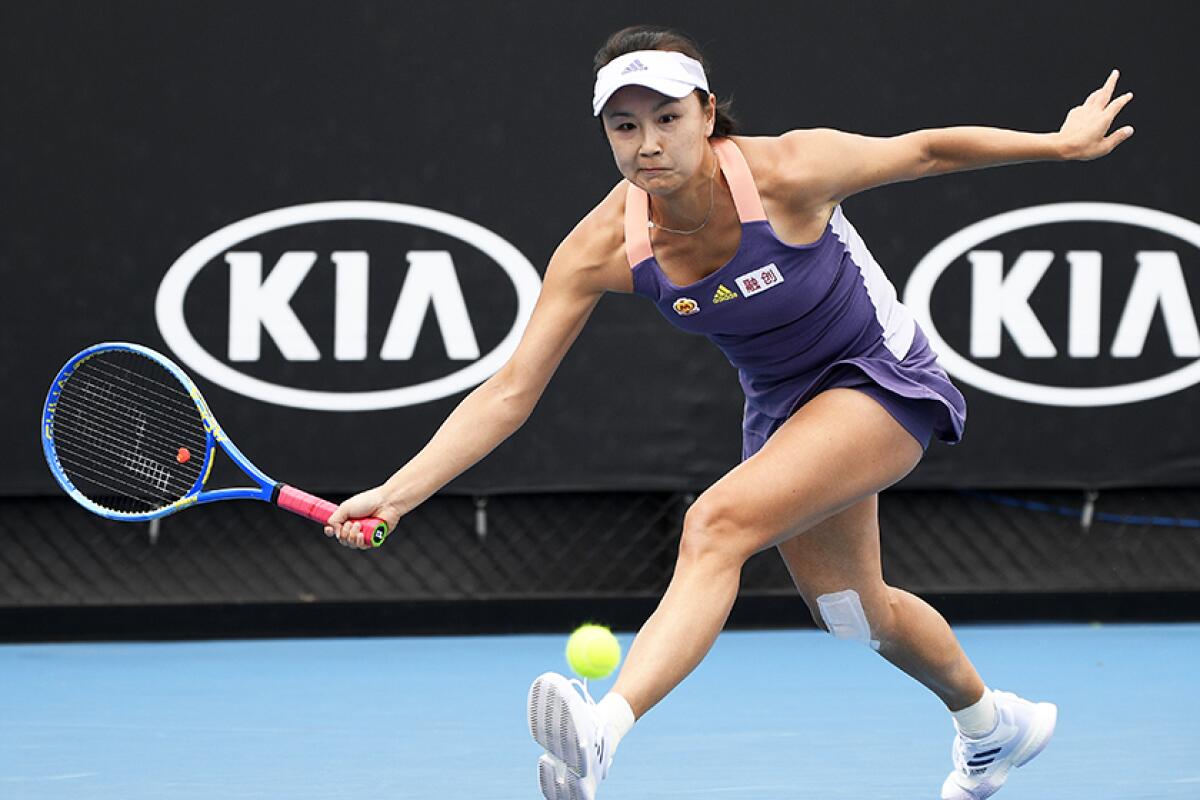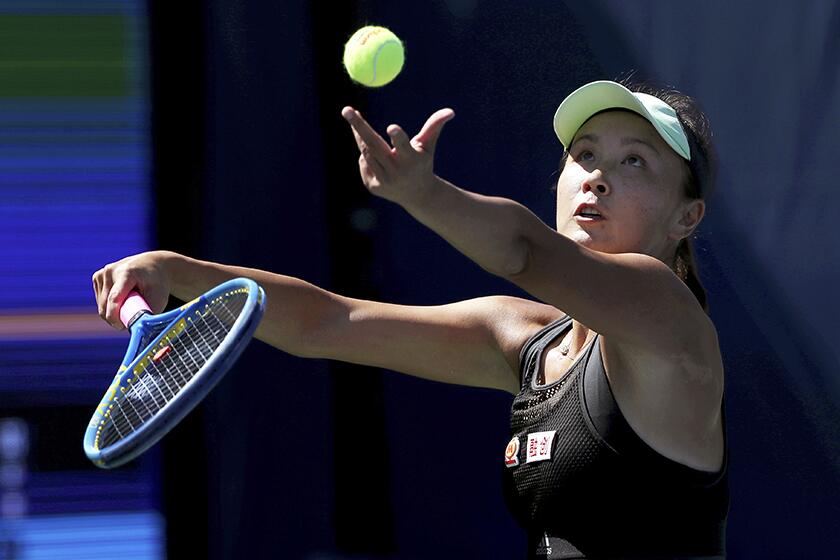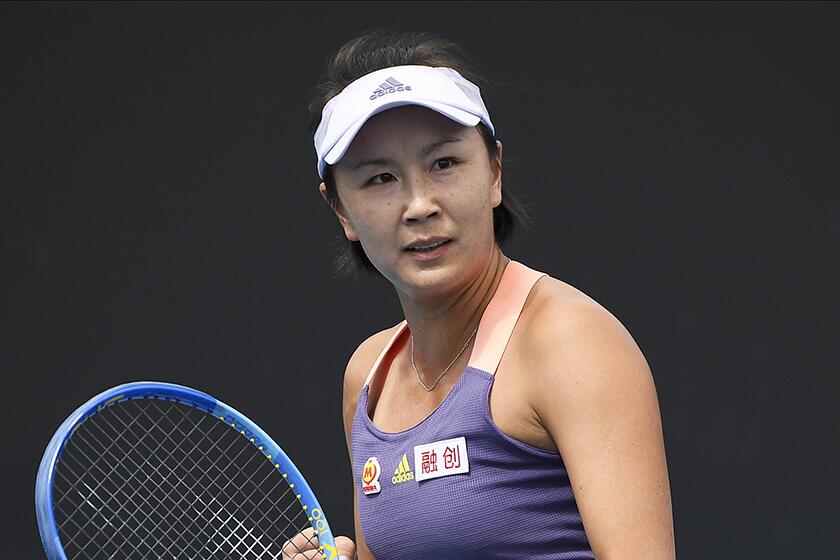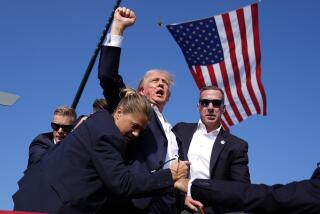Australian Open backtracks, allows ‘Where is Peng Shuai?’ T-shirts

MELBOURNE, Australia — Restrictions that resulted in the removal of an Australian Open spectator for wearing a T-shirt supporting Chinese tennis player Peng Shuai have been overhauled after international backlash.
With reports of activists planning to distribute hundreds of shirts emblazoned with the phrase “Where is Peng Shuai?” in time for Saturday’s women’s final, the message shouldn’t be hard to find. Peng, 35, has virtually disappeared from public view since writing in a social media post in November that she was sexually assaulted by a former senior member of China’s ruling Communist Party.
Australian Open tournament director Craig Tiley told the Associated Press that it would be OK for people to wear the shirts at Melbourne Park, as long as they didn’t congregate in large groups or cause problems for other spectators.
“If they want to do that, that’s fine,” Tiley said in a telephone interview. But “if anyone’s coming on site with the express intent of disrupting the comfort and safety of our fans, they’re not welcome.
“We can’t sell tickets in advance and have people come in and feel unsafe because there’s a large group of people that are using [the tournament] as a platform to espouse their views on whatever topic it is.”
Footage screened last weekend of security and police requesting that a fan remove a shirt featuring an image of Peng on the front and “Where is Peng Shuai?” on the back sparked widespread condemnation, with some critics describing it as cowardly on the part of the tournament.
Women’s tennis takes a stand for Peng Shuai, a Chinese player who accused a Communist Party leader of sexual abuse and then vanished from public view.
Tennis great Martina Navratilova, a three-time Australian Open singles champion, posted a tweet saying: “That’s just pathetic. The @wta [Women’s Tennis Assn.] stands pretty much alone on this!!!”
Tennis Australia responded initially by stating that the clothing breached its rule on “political messaging.”
“To ensure that the Australian Open remains a welcoming, safe and inclusive event for everyone, we have a longstanding policy of not allowing banners, signs or clothing that are commercial or political,” organizers said in a statement.
In a later statement, Tennis Australia said it understood that “people have strongly held personal and political views on a range of issues.”
The disappearance of tennis star Peng Shuai shines a light on similar cases involving political dissidents, entertainers, business leaders and others.
“Peng Shuai’s safety is our primary concern. We continue to work with the WTA and the global tennis community to do everything we can to ensure her well-being,” the statement said. “Our work is ongoing and through the appropriate channels.”
Tiley said the security staffer was following the tournament’s protocols on the weekend but, after a review, the woman involved in the incident would be invited back to the tournament because she wasn’t deemed to be trying to cause a disruption.
Peng’s accusation against former Chinese Vice Premier Zhang Gaoli briefly appeared on her verified Weibo social media in early November before being swiftly removed. Screenshots of the post were shared across the internet, drawing widespread concern about Peng’s safety.
Following the posting, the three-time Olympian and former doubles champion at Wimbledon and the French Open appeared standing beside a tennis court in Beijing, waving and signing oversize commemorative tennis balls for children. The foreign arm of Chinese state TV also issued a statement in English attributed to Peng that retracted her accusation against Zhang.
Go beyond the scoreboard
Get the latest on L.A.'s teams in the daily Sports Report newsletter.
You may occasionally receive promotional content from the Los Angeles Times.
But WTA chief executive Steve Simon last month questioned the emailed statement’s legitimacy, and others said it only increased their concern about Peng’s safety.
The WTA made repeated calls for China to conduct an inquiry into Peng’s accusations and to allow tennis officials to communicate directly with her.
More to Read
Go beyond the scoreboard
Get the latest on L.A.'s teams in the daily Sports Report newsletter.
You may occasionally receive promotional content from the Los Angeles Times.












